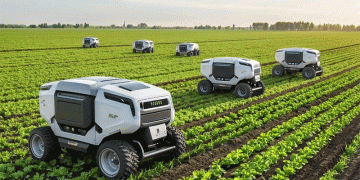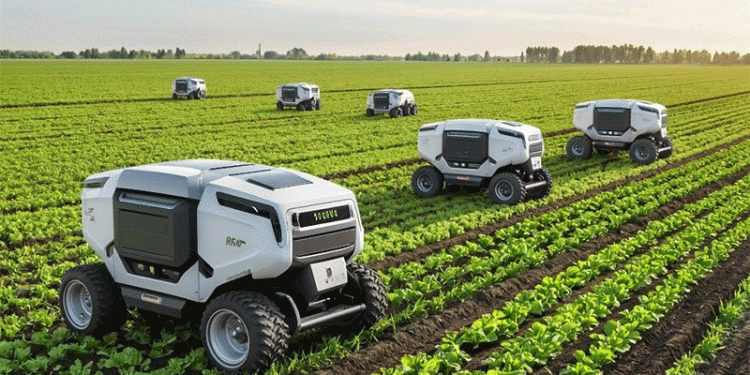Scientists from the Institute of Information Technology and Intelligent Systems at Kazan Federal University (KFU) have developed a cutting-edge algorithm that allows autonomous tractors to assess soil density while reducing energy consumption. The findings were presented at the 5th International Conference on Agricultural Digitalization and Organic Production (ADOP 2025).
The Problem: Heavy Tractors Damage Soil
Modern agriculture relies on large, heavy tractors, which cause soil compaction—a major issue that reduces crop yields by limiting root growth and water infiltration. As explained by Ramil Fayzullin, a PhD student and co-author of the study:
“If you keep walking on the same patch of grass, it stops growing. Similarly, heavy tractors compress the soil, making it harder for crops to thrive.”
The Solution: Lightweight Autonomous Tractors with Smart Routing
The new algorithm helps smaller, unmanned tractors optimize their paths to:
- Avoid over-compacting vulnerable soil zones
- Reduce energy use through efficient route planning
- Minimize human intervention with fully autonomous operation
Additionally, the system includes strategic placement of charging stations to further enhance efficiency.
Why This Matters for Modern Agriculture
Soil compaction is a global challenge, with studies showing that over 20% of European farmland suffers from severe compaction (European Soil Data Centre, 2024). Autonomous solutions like KFU’s algorithm could:
✔ Increase long-term soil health
✔ Lower fuel and labor costs
✔ Support precision farming initiatives
KFU’s breakthrough in autonomous tractor navigation marks a significant step toward sustainable, efficient farming. By minimizing soil damage and optimizing energy use, this technology could help farmers boost yields while preserving land for future generations.































